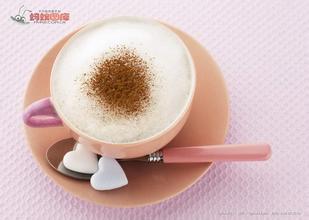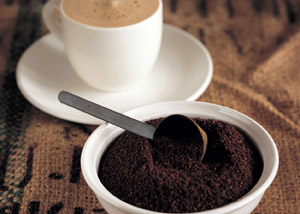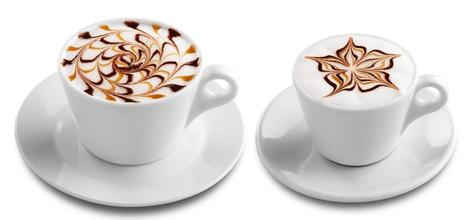Jamaica Blue Mountain Coffee Flavor Producing Area Growing Environment Fine Coffee Bean Introduction
Jamaica pursues an independent and non-aligned foreign policy, advocates sovereign equality of States, non-interference in internal affairs, promotion of international cooperation, settlement of international disputes within the framework of the United Nations and opposition to the use of force.
Safeguarding national sovereignty, attracting foreign investment and tourists, and exploring international markets are the main objectives of its diplomatic work. We will actively develop solidarity and cooperation with Caribbean countries, actively participate in regional organizations such as the Caribbean Community and the Association of Caribbean States, and vigorously promote the process of regional integration. Priority should be given to developing relations with the United States and other major western developed countries, and efforts should be made to develop friendly cooperation with developing countries in Latin America, Asia and Africa. He has been active in international and multilateral affairs and has twice been elected a non-permanent member of the UN Security Council. [21]
By the end of 2006, Jamaica had diplomatic relations with 139 countries. [22]
External Relations
relations with China
On November 21, 1972, China established diplomatic relations with Jamaica. In February 2005, the two countries established a "friendly partnership for common development." The friendly and cooperative relations between China and Jamaica have developed smoothly, with frequent high-level exchanges and good coordination in international affairs. [21]
In April 2008, China and Jamaica established and launched a mechanism for meetings between officials of the two foreign ministries, and two meetings have been held.
On February 26, 2014, the Prime Minister's Office of Jamaica held a press conference, announcing that Chinese citizens would be granted visa-free travel to Jamaica. Chinese citizens with valid passports would be granted visa-free travel to Jamaica for a maximum stay of 30 days
Why Blue Mountain Coffee tastes pure "secret": their coffee trees all grow on rugged hillsides, picking process is very difficult, non-local skilled women simply can not be competent. It's important to pick coffee beans that are ripe, as immature or overripe can affect the quality of coffee. The beans are shelled the same day and allowed to ferment for 12-18 hours. Coffee beans are then washed and sifted. after
The process is drying, which must be carried out on a concrete floor or thick blanket until the humidity of the coffee beans drops to 12%-14%. Then they are stored in special silos. When needed, it is taken out and roasted, and then ground into powder. These procedures must be strictly controlled, otherwise, the quality of coffee will be affected. The earliest "Jamaica Blue Mountain" refers to the coffee produced by "Wallenford Farm" and "Silver Hill Farm", with the former quality being the best. Today's Jamaica Blue Mountain refers to the coffee beans grown in the Blue Mountain area (more than 1000 meters high) east of "Kingston", the capital of Jamaica. Now the largest estate in the country, M.B.C. F is printed on its barrels, and its products are often found in Taiwan. Jamaica Blue Mountain is a very strict quality control, by the government "Coffee Industry Council" certification work.
Coffee beans generally grown at low altitudes and other regions can only be called "Jamaica mountain beans" or "Jamaica washed beans." Compared with Jamaica Blue Mountain, the flavor is much different. However, these producing areas are twice the area of the real Blue Mountain region and account for 75% of the country's production. Therefore, when buying Jamaica coffee, don't think that you have bought Blue Mountain coffee.
Because Jamaica Blue Mountain is so famous, there are fake Blue Mountain coffee on the market, or simply called "Blue Mountain Coffee." Basically, this is a comprehensive product prepared by the store itself. There may be a real Jamaica Blue Mountain bean. In 1717, King Louis XV of France ordered coffee to be grown in Jamaica for twenty years.
Blue Mountain Coffee
Blue Mountain Coffee (6 photos)
In the mid-19th century, Sir Nicholas Lawes, Governor General of Jamaica, imported Arabica seeds from Martinique and began planting them in St. Andrew. To this day, St. Andrew's is one of the top three growing regions for Blue Mountain coffee in Jamaica, along with Portland and St. Thomas. Within eight years, Jamaica exported more than 375 tons of pure coffee. In 1932, coffee production peaked, harvesting more than 15000 tons of coffee.

Important Notice :
前街咖啡 FrontStreet Coffee has moved to new addredd:
FrontStreet Coffee Address: 315,Donghua East Road,GuangZhou
Tel:020 38364473
- Prev

Introduction to the planting environment of Indonesia Mantenin boutique coffee with a long aftertaste
Mandarin Coffee is produced in Sumatra, Indonesia, Asia, also known as Sumatran Coffee. The main producing areas are Java, Sulawesi and Sumatra, 90% of which are Robusta species. Among them, the "Mantelin" produced in Sumatra is the most famous. The best of the exquisite traditional Arabica coffee produced in northern Sumatra of Sumatra is called Lindong Li
- Next

Introduction to the planting environment for the flavor and taste of Tanzania's boutique coffee beans with extraordinary quality
In regional affairs, we pursue the policy of making friends, not making enemies, promoting peace and seeking development. He attaches importance to developing good-neighborly and friendly relations with neighboring countries and has close relations with Kenya, Uganda, Ethiopia and other countries. We attach importance to exerting influence in regional affairs and are committed to maintaining regional peace and stability. Actively participate in mediating the political crisis caused by Kenya's general election at the end of 2007 and Zimbabwe's general election
Related
- Detailed explanation of Jadeite planting Land in Panamanian Jadeite Manor introduction to the grading system of Jadeite competitive bidding, Red bid, Green bid and Rose Summer
- Story of Coffee planting in Brenka region of Costa Rica Stonehenge Manor anaerobic heavy honey treatment of flavor mouth
- What's on the barrel of Blue Mountain Coffee beans?
- Can American coffee also pull flowers? How to use hot American style to pull out a good-looking pattern?
- Can you make a cold extract with coffee beans? What is the right proportion for cold-extracted coffee formula?
- Indonesian PWN Gold Mandrine Coffee Origin Features Flavor How to Chong? Mandolin coffee is American.
- A brief introduction to the flavor characteristics of Brazilian yellow bourbon coffee beans
- What is the effect of different water quality on the flavor of cold-extracted coffee? What kind of water is best for brewing coffee?
- Why do you think of Rose Summer whenever you mention Panamanian coffee?
- Introduction to the characteristics of authentic blue mountain coffee bean producing areas? What is the CIB Coffee Authority in Jamaica?

